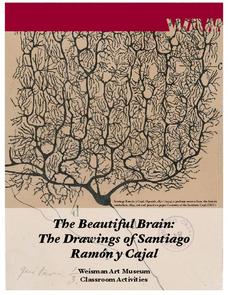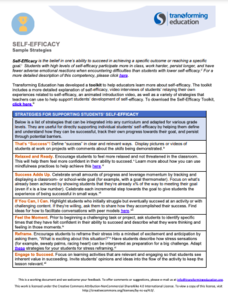Curated OER
Endeavor: Preparing Ourselves for Future Destinations
Pupils define the word endeavor and then practice the art of self-discipline. They create character trait charts and discuss how strong character traits help students meet their future destinations.
Curated OER
Rules and Consequences in the Classroom
Young scholars study rules and consequences as well as learn positive, healthy behaviors in and out of the classroom. In this behavior lesson plan, students discuss behaviors that got them into trouble at home. Young scholars name...
Curated OER
Classroom Management Using Gandhian and Kingian Principles of Nonviolence
Tenth graders study the concept of civil disobedience. In this Current Events lesson, 10th graders participate in a survey that nominates students for hard work and exemplifies nonviolence.
Curated OER
Lesson 2, Student and Teacher Behaviors in Science
Learners explore ethics. In this science ethics lesson, students examine science lab classroom ethics as they consider various scenarios that encourage authentic student discussion and the formulation of guidelines and principles.
Curated OER
Lesson 5, What Kind of Research Should Our Government Support?
High schoolers examine research ethics. In this scientific research ethics lesson, students examine hypothetical research scenarios and determine which proposals should be funded with tax dollars.
Curated OER
A Shape-Note Singing Lesson
Students discover the shape-note method of singing. In this reading and notating music instructional activity, students learn the four shapes of the shape-note method and the tradition of Sacred Harp singers. Students sing the shapes of...
University of Minnesota
Beautiful Brain: Brain Inspiration
"Neuroscientists consider Cajal as important to their discipline as Einstein is to physics." The first of four lessons has scholars view Santiago Ramon y Cajal's drawings of neurons. They reflect and respond to the art through writing...
University of Minnesota
Beautiful Brain: Strangest Dream
Do words change or add meaning or interest to a work of art? The final lesson plan in a four-part series on the beautiful brain as a work of art focuses on art analysis. Scholars write a story about exploring art from the inside....
Florida Department of Health
Nutrition: Developing Healthy Habits Unit
The focus of the fourth unit in the Youth Risk Behavior Survey Curriculum is on healthy eating and exercise. Class members examine healthy habits data from the YRBD Youth Online Tool, learn about the importance of a healthy diet and...
University of Minnesota
Beautiful Brain: Do You See What I See?
Can art play tricks on your eyes, and can a still painting really appear to vibrate? The second lesson in a four-part series discusses the way our beautiful brains translate visual images. It highlights the style of optical art and...
University of Minnesota
Beautiful Brain: Step Inside the Brain
Before digital microscopes, scientists hired artists to draw the things visible in the microscope. Through training in neuroscience and art, Cajal revolutionized the way we view the beautiful brain. The third lesson in a series of four...
Boys Town
Teaching Social Skills, Creating Successful Students “Following Instructions” and “Listening”
With the help from learning games and holiday-themed coloring pages, scholars learn the importance of listening carefully and following directions. Coloring pages celebrate Halloween and Thanksgiving. Learning games include...
Curated OER
The Tango
Fourth graders explore the music of Buenos Aires as they hear and then dance the Tango. They practice basic Tango rhythm, learn to sing the song, "Any Turkey can Tango," then practice a few Tango-riffic dance steps with a partner....
Curated OER
Image Transfer and Printmaking With Clay and Under Glazes
What a creative lesson! Learners make sushi dishes using printmaking methods. They use a variety of techniques including those involving under glazes and clay. There are instructions and pictures to make this process easy for both...
Transforming Education
Self-Management Strategies
What self-management techniques help scholars achieve their goals? Readers review a list of strategies for managing stress, increasing motivation, and setting goals. They discover how to monitor their emotions, create checklists to stay...
Transforming Education
Self-Efficacy Strategies
Scholars with high levels of self-efficacy perform better in school. Instructors review a list of strategies for enhancing self-efficacy skills. They discover how to teach learners to appropriately define success, celebrate progress, and...
Curated OER
Preparing for a Substitute
When you are out of the classroom, and have a substitute in your room, there are ways to make the day go smoothly.
Curated OER
Parents Hand Out Unusual Punishments
Young scholars discuss how they are disciplined at home, then read a news article about some unusual punishments given to children. In this current events activity, the teacher introduces the article with a discussion and vocabulary...
Curated OER
Investigating the Hydrosphere
No matter the scientific discipline, your students can benefit from a study of water.
Curated OER
Lasting Legacies of Ancient Greece
Ancient Greece lesson plans can open up a world of information for students.
Curated OER
Thematic Amusement Park Projects
Theme park lesson plans help students learn about history, science, and have fun at the same time.
Curated OER
Art and Culture of France
Lessons about France can cover art, history, and the colonization of Africa.
Curated OER
Problem Solving in Computer Classrooms
Students discuss and implement basic problem solving techniques. They define program specifications and write programs. Students work cooperatively on programming problems and brainstorm solutions.
Curated OER
Debating Controversial Issues: Integrating Science and Current Events
In order to give young scientists experience with critical thinking skills, introduce them to a current controversy and prepare them to debate. Choose a topic, such as genetically modified organisms, and assign groups to represent...

























